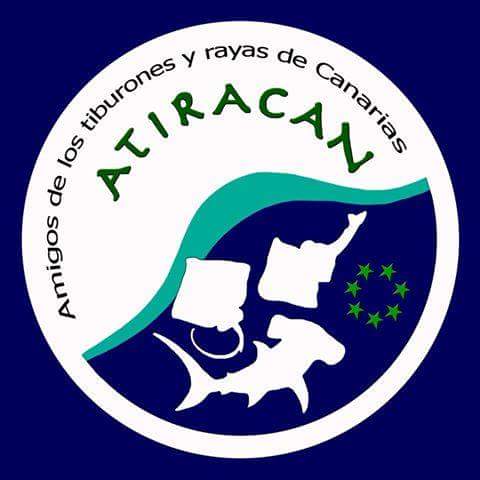 -
As a result of more than 25 complaints presented by ATIRACAN at The Canary Government Fisheries Council and Spain’s Nature Protection Service, the Fisheries Council is making a great effort to stop the illegal sharks and rays fishing at the Canary Islands.
Derived from the great number of complaints made by ATIRACAN against certain sport fishing companies related to the advertising on internet, posters and other media of photographs and activities as protected species catch and possession on board.
The Canary Fisheries Council issue an official statement to all the sport fishing license holders where they are indicated that in accordance to the established on the 12.1A section of the Fishing Council Organic Regulation approved by the 40/1012 of May 17th act the Canary Government General Fisheries Direction it’s empowered to elaborate management proposals for recreational fisheries and to supply and renew fishing licenses of any kind.
It reminds them the elasmobranch list that is forbidden its capture and holding on board, as they are the Angel Shark (Squatina squatina), Hammerhead sharks (Sphyrna and Eusphyra genus), Porbeagle Shark (Lamna nasus), Round Stingray (Taeniura grabata), Spiny Butterfly Ray (Gymnura altavela) and White Skate (Rostroraja alba) among others.
Also in accordance with the 2.a section of the 17/2003 from April 10th Canary Fishing Law this Fisheries Council’s goal is the protection, conservation and restoration of marine resources and its ecosystems as well the water and marine bottoms.
This Fisheries Council determines that every sport fishing license holder should withdraw immediately all photographic material or any other advertising on internet or at the docks where activities such as the capture (even as bycatch) and holding on board of these protected or prohibited species, are reflected or announced.
A warning is issued that any failure to comply with this arrangement can result on license non-renewal or revocation and without prejudice to any other actions that may be appropriate to adopt in accordance with the provisions of current law.
Also, the license holders must put on board and at a visible place, for all crew and passengers, the “Forbidden to Catch Sharks and Rays Species” official informative poster, whose delivery by the Canary General Fisheries Direction is performed with the advice note from this authority.
ATIRACAN will continue collaborating with the Canary Fisheries Council and will complaint against any sport fishing companies that fail to comply with this official statement.
For more information or support to Canary Islands shark conservation please contact:
Suso Rodas
ATIRACAN
-
As a result of more than 25 complaints presented by ATIRACAN at The Canary Government Fisheries Council and Spain’s Nature Protection Service, the Fisheries Council is making a great effort to stop the illegal sharks and rays fishing at the Canary Islands.
Derived from the great number of complaints made by ATIRACAN against certain sport fishing companies related to the advertising on internet, posters and other media of photographs and activities as protected species catch and possession on board.
The Canary Fisheries Council issue an official statement to all the sport fishing license holders where they are indicated that in accordance to the established on the 12.1A section of the Fishing Council Organic Regulation approved by the 40/1012 of May 17th act the Canary Government General Fisheries Direction it’s empowered to elaborate management proposals for recreational fisheries and to supply and renew fishing licenses of any kind.
It reminds them the elasmobranch list that is forbidden its capture and holding on board, as they are the Angel Shark (Squatina squatina), Hammerhead sharks (Sphyrna and Eusphyra genus), Porbeagle Shark (Lamna nasus), Round Stingray (Taeniura grabata), Spiny Butterfly Ray (Gymnura altavela) and White Skate (Rostroraja alba) among others.
Also in accordance with the 2.a section of the 17/2003 from April 10th Canary Fishing Law this Fisheries Council’s goal is the protection, conservation and restoration of marine resources and its ecosystems as well the water and marine bottoms.
This Fisheries Council determines that every sport fishing license holder should withdraw immediately all photographic material or any other advertising on internet or at the docks where activities such as the capture (even as bycatch) and holding on board of these protected or prohibited species, are reflected or announced.
A warning is issued that any failure to comply with this arrangement can result on license non-renewal or revocation and without prejudice to any other actions that may be appropriate to adopt in accordance with the provisions of current law.
Also, the license holders must put on board and at a visible place, for all crew and passengers, the “Forbidden to Catch Sharks and Rays Species” official informative poster, whose delivery by the Canary General Fisheries Direction is performed with the advice note from this authority.
ATIRACAN will continue collaborating with the Canary Fisheries Council and will complaint against any sport fishing companies that fail to comply with this official statement.
For more information or support to Canary Islands shark conservation please contact:
Suso Rodas
ATIRACANcoordinator aticancanarias@gmail.com
WEB atiracan.org
Translated by MSc. Jorge Isaac Rosales









